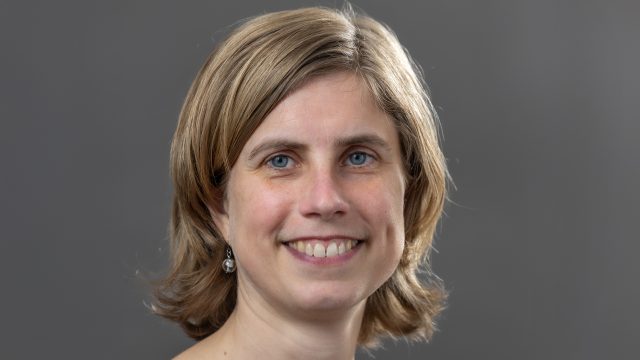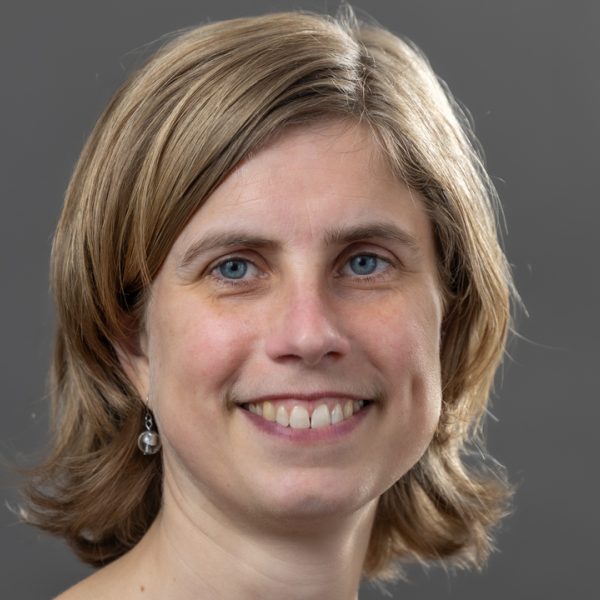
Our Focus
Cancer is often caused by mutations in tumour suppressor genes or oncogenes. Moreover, genomic instability is one of the hallmarks of cancer. Both genomic instability and mutations are a consequence of DNA damage inaccurately repaired, underlining the importance of cellular pathways equipped with repairing DNA damage for preventing cancer. My research is directed at studying the cellular pathways repairing DNA double-stranded breaks (DSBs), one of the most cytotoxic types of DNA damage. The cell has at least four different pathways to repair DSBs, varying in their efficiency and fidelity. Our research focusses on understanding how the cell decides which pathway to activate and how this is affecting genome stability. In addition, our lab studies the multifaceted roles of BRCA1, a gene mutated in ~5% of cancers and a key player of DSB repair. Using proteomic, genomic and dedicated cellular assays, we study the regulation and function of the different protein complexes BRCA1 is involved in.
About Sylvie Noordermeer

Sylvie Noordermeer
My Research
Sylvie Noordermeer obtained her PhD in 2012 at the Radboud University Medical Center in Nijmegen. Her PhD research focussed on the process of ubiquitylation in acute myeloid leukemia (AML). A key finding during her PhD research was that overexpression of BRE – a protein interacting with BRCA1 –has prognostic value in AML and breast cancer. Funded by fellowships by the Canadian Terry Fox foundation and the Dutch Cancer Foundation (KWF), Sylvie continued her career as a postdoctoral fellow in the laboratory of Daniel Durocher in Toronto, Canada (2012-2016) and in the group of Haico van Attikum at the Leiden University Medical Center (2017-2018). During her postdoc, she worked on the molecular determinants of DNA double strand break repair. Key findings included the USP11-mediated regulation of homologous recombination during the cell cycle and the discovery of the Shieldin complex as an active inhibitor of resection during DNA double strand break repair.
In 2019, Sylvie started an independent research group at the Department of Human Genetics at the Leiden University Medical Center. With grants from the Dutch Research Council (NWO), the Dutch cancer foundation (KWF) and Oncode, her group studies BRCA1 protein complex formation and function during DNA double strand break repair. The primary research aims of the group are to better understand the molecular regulation of repair of DNA double stranded breaks and to improve the prediction of cancer onset and therapy response for patients carrying mutations in factors involved in DNA double strand break repair.
Awards
2020: project grant from the Dutch cancer foundation (KWF);
2019: VIDI grant from the Dutch Research Council (NWO);
2019: Oncode Young Investigator grant;
2019: C.J. Kok prize; a yearly prize awarded to the best fundamental scientist within the LUMC.
2018: Contribution from the LUMC Zaaijer Fund to encourage female scientists to apply for large research grants.
2014: Dutch Cancer Foundation (Koninklijk Wilhelmina Fonds) fellowship; a four-year fellowship covering personal funding and research allowance.
2012: Excellence in Radiation Research for the 21st century; a two-year fellowship covering personal funding by the Terry Fox Foundation and the Canadian Institute for Health Research (CIHR).
Key Publications
The Shieldin complex mediates 53BP1-dependent DNA repair. Nature, 2018 Aug; 560(7716).
Noordermeer SM*, Adam S*, Setiaputra D*, Barazas M, Pettitt SJ, Ling AK, Olivieri M, Álvarez-Quilón A, Moatti N, Zimmermann M, Annunziato S, Krastev DB, Song F, Brandsma I, Frankum J, Brough R, Sherker A, Landry S, Szilard RK, Munro MM, McEwan A, Goullet de Rugy T, Lin ZY, Hart T, Moffat J, Gingras AC, Martin A, Van Attikum H, Jonkers J, Lord CJ, Rottenberg S, Durocher D.A mechanism for the suppression of homologous recombination in G1 cells. Nature, 2015 Dec; 528(7582).
Orthwein A*, Noordermeer SM*, Wilson MD, Landry S, Enchev RI, Sherker A, Munro M, Pinder J, Salsman J, Dellaire G, Xia B, Peter M, Durocher D.Mitosis Inhibits DNA Double-Strand Break Repair to Guard Against Telomere Fusions. Science, 2014 Apr; 344(6180).
Orthwein A, Fradet-Turcotte A, Noordermeer SM, Canny MD, Brun CM, Strecker J, Escribano-Diaz C, Durocher D.Expression of the BRCA1 complex member BRE predicts disease free survival in breast cancer. Breast Cancer Research and Treatment, 2012 Aug;135(1).
Noordermeer SM, Wennemers M, Bergevoet SM, Van der Heijden A, Tönnissen E, Sweep FCGJ, Jansen JH, Span PN, Van der Reijden BA.High BRE expression predicts favorable outcome in adult acute myeloid leukemia, in particular among MLL-AF9 positive patients. Blood, 2011 Nov;118(20).
Noordermeer SM, Sanders MA, Gilissen C, Tönnissen E, Van der Heijden A, DöhnerK, Bullinger L, Jansen JH, Valk PJM, Van der Reijden BA.
Members
| Sylvie Noordermeer Group leader | Ho My Phuc Vo PhD student | Roos Kampen Technician |
| Simona V. Antonova Post Doc | Timo Wendel Postdoc | Venda Mangkusaputra PhD researcher |